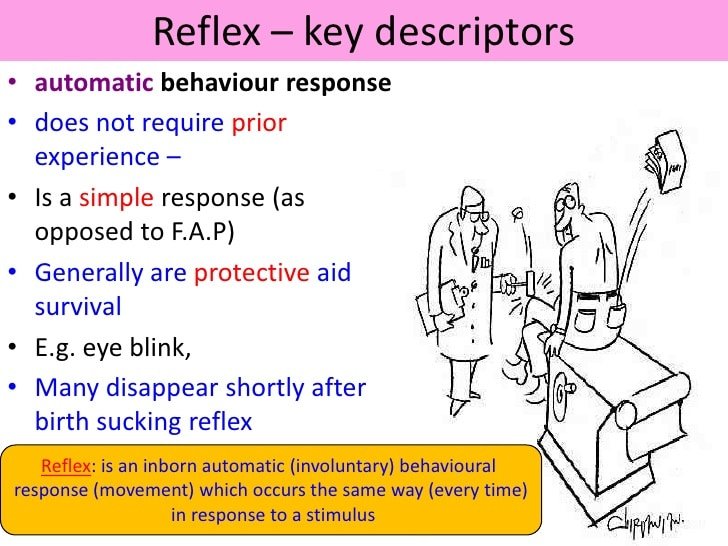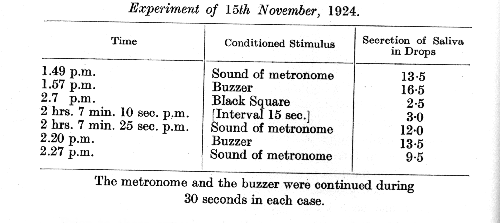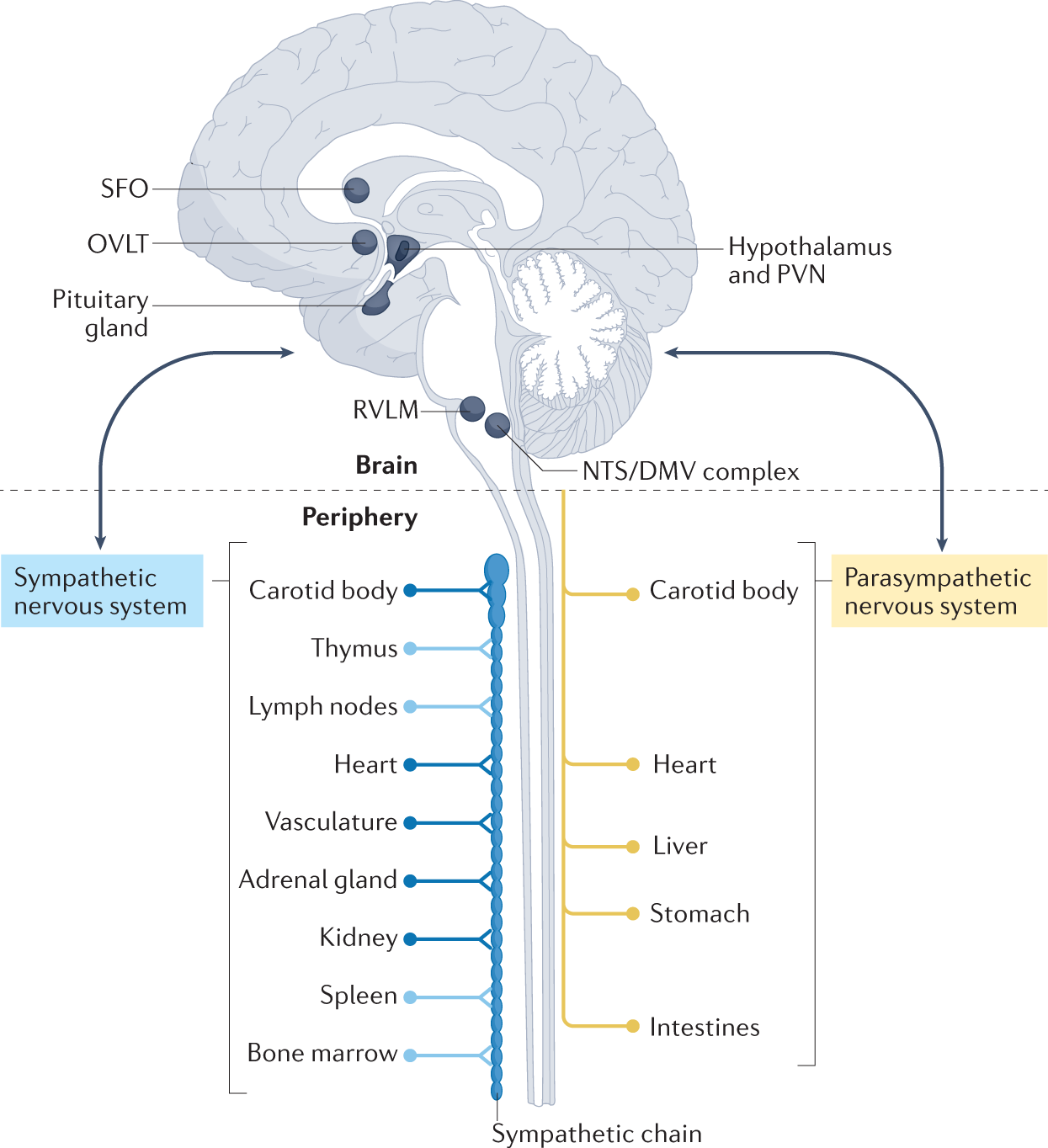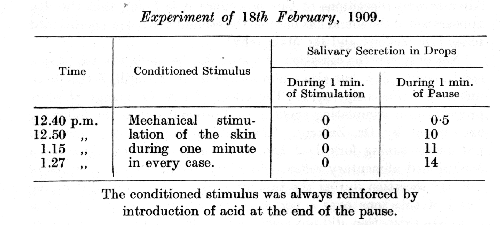Pavlov Called Reflexes Present at Birth
In mind-numbing detail it summarizes the 25 years of research carried out by his team that ultimately led to a Nobel Prize. Pavlov called reflexes present at birth _____.
8 1 Learning By Association Classical Conditioning Introduction To Psychology 1st Canadian Edition
Conditioning proceeds satisfactorily but.

. Question _____ stimuli are typically events that are important to survival. A reflex that is absent irregular or uneven may be an indicator of neurological dysfunction. In _____ conditioning the CS begins and ends before the US appears.
Pavlov called reflexes present at birth _____. Иван Петрович Павлов IPA. 14 September 1849 27 February 1936 was a Russian physiologist known primarily for his work in classical conditioning.
She finds the idea so ridiculous that she laughs out loud the instant he has gotten the question out. One way to determine if conditioning has occurred is to present the CS alone. ɪˈvan pʲɪˈtrovʲɪtɕ ˈpavləf.
Physiologists have studied and are studying at the present time these numerous machine-like inevitable reactions of the organism-reflexes existing from the very birth of the animal and due therefore to the inherent organization of the nervous system. Ivan Petrovich Pavlov Russian. Unconditional 24 Garcias first experiment on taste aversion was unusual in that the _____.
Pavlov called reflexes present at birth _____ reflexes. The institute was founded in 1990 by prince Odenburgsky a member of the Russian Royal family 4. Physiology of conditioned reflexes forms an objective background for neurofeedback 3.
Pavlov called reflexes that are present at birth. Pavlov called reflexes present at birth _____. Pavlov called this a conditioned reflex to distinguish it from an innate reflex such as salivating at the sight of food or jerking your hand away from fire.
TEST BANK CHAPTER 3 18. Pavlov was a _____. All reflexes are present prior to birth.
Pavlov called reflexes present at birth _____. From his childhood days Pavlov demonstrated intellectual curiosity along with an unusual energy which he referred to as the. Pavlovian Conditioning and Beyond 1.
Faster conditioning proceeds 26 The term used to refer to sexual behavior disapproved of by society is _____. The term _____ response refers to an innate reflex response to a stimulus. View Homework Help - Section 2 Assignmentdocx from PSYCHOLOGY 3032 at Louisiana State University Alexandria.
Pavlov called reflexes present at birth _____. View Test Prep - Psych_136_Ch_3_Quizdocx from PSYCH 136 at California State University Fresno. Conditioned Reflexes translated from the Russian is a collection of lectures first given by Pavlov at the Military Medical Academy in St Petersburg in 1924 and subsequently turned into a book.
In _____ conditioning a neutral stimulus is paired with a well-established CS. Flag this Question Question 9 2 pts Many people think of scientists as dull people without feelings but Pavlov said that science requires _____. The term _____ response refers to an innate reflex response to a stimulus.
Ivan Petrovich Pavlov 1849-1936 the famous Russian scientist-physiologist laureate of the Nobel Prize 1904 in medicine and physiology had acquired the world-wide fame due to his investigations in the field of physiology of reflexes in particular conditioned reflexes as essential constructive elements of adaptive mechanisms in behaviour of animals and human being. Question _____ stimuli are typically events that are important to survival. Pavlov found that when he paired painful stimuli with food the dog came to show no distress at the painful stimuli this experiment may help explain_____ behavior in humans.
Interval between CS and US was several minutes 25 In general the more intense a US the _____. The experiments on conditioned reflexes were carried out by Ivan Pavlov in the Institute of Experimental Medicine in St. Innate unconditioned fixed unconditional.
Each such presentation is called an _____ trial. Answer _____ stimuli are typically events that are important. Pavlov called reflexes present at birth _____.
_____ is an increase in the intensity of a reflex response after repeated presentations of the eliciting. Not extinction not experimental. Pavlov called reflexes present at birth _____.
The term _____ response refers to an innate reflex response to a stimulus. The time between conditioning trials is called the _____. The term _____ response refers to an innate reflex response to a stimulus.
Johns face turns the color of a. Reflexes or involuntary reactions resulting from changes in pressure sight sound and tactile stimulation form the basis for the information decoding stage. Anxiety finally musters up the courage to ask the beautiful and popular Carole to go to the movies.
An experimenter presents a flash of light and a bell simultaneously followed by food. Pavlov called reflexes present at birth _____ question. Reflexes are the elemental units in the mechanism of perpetual equilibration.
View Nagham Elbizri chapter 3 and 4 learning and behaviordocx from PSYCHOLOGY 3032 at Louisiana State University Alexandria.

What Are Reflexes In Psychology Tutordale Com

How Babies Learn The Autonomic Socioemotional Reflex Sciencedirect

Pin By Sarah Oberle On Neonatal Development Pediatric Occupational Therapy Ocupational Therapy Reflexes

Child Development Theories Ivan Pavlov

How Pavlov S Doggedness Led To A Breakthrough In Psychology

Classics In The History Of Psychology Pavlov 1927 Lecture 3

Pin By Sarah Oberle On Neonatal Development Pediatric Occupational Therapy Ocupational Therapy Reflexes

How Babies Learn The Autonomic Socioemotional Reflex Sciencedirect

How Babies Learn The Autonomic Socioemotional Reflex Sciencedirect

Neuroimmune Axis Of Cardiovascular Control Mechanisms And Therapeutic Implications Nature Reviews Cardiology

Classics In The History Of Psychology Pavlov 1927 Lecture 3

Pin By Sarah Oberle On Neonatal Development Pediatric Occupational Therapy Ocupational Therapy Reflexes

Pavlovian Conditioning And Its Concepts Ppt Download

What Are Reflexes In Psychology Tutordale Com

How Babies Learn The Autonomic Socioemotional Reflex Sciencedirect



Comments
Post a Comment